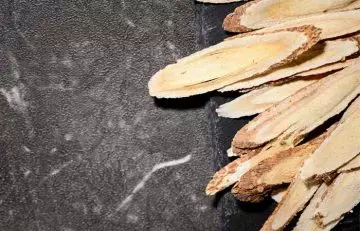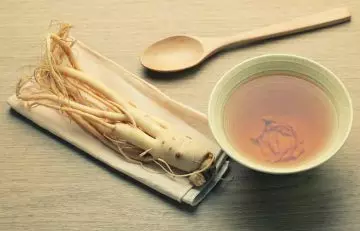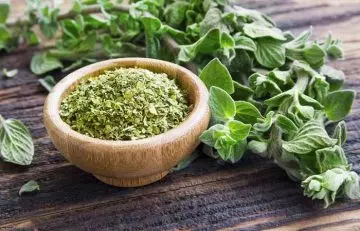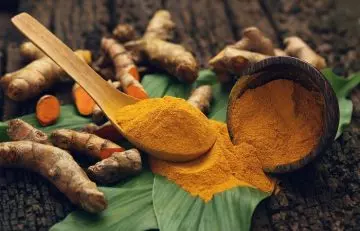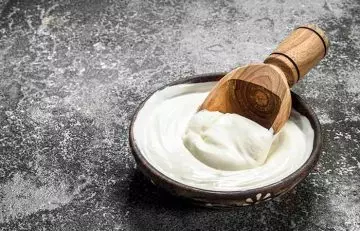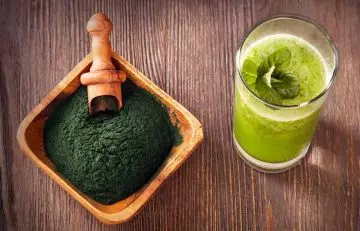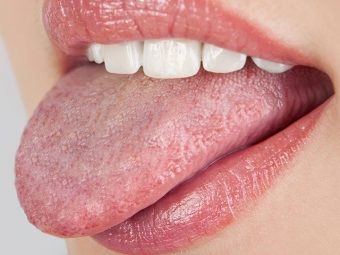Effective Home Remedies To Increase Your Immunity Naturally
Get a better understanding of the immune system and ways to improve it with ingredients inside your kitchen.

Image: Shutterstock
You need a robust immune system whether you want to fight the average cold or avoid the stomach flu. Finding ways to increase your immunity can pay off tremendously. That’s because while immunizations, medicines, and other therapies can assist your body in dealing with bacteria and viruses, your immune system must ultimately carries the brunt of the burden. You are more likely to get diseases and infections if your immune system is weak. As a result, improving your immunity is critical if you want to live a life free of diseases. The good news is that you may do so by taking measures and using a few natural strategies to boost your immune system’s performance. Are you unsure how you’ll manage it all? To find out, keep reading.
In This Article
What Is The Immune System?
The immune system protects our body from infectious organisms. It is an integral part of our body’s defense mechanism and is necessary for our survival. In the absence of an immune system, our body will be open to attacks from foreign bodies like bacteria, viruses, and other pathogens.
Let us now understand how this complex network of cells, tissues, and organs in our immune system works towards protecting us.
How Does The Immune System Work?
The immune system consists of a vast network of tissues and cells that are constantly looking for invading pathogens. Once the immune system detects a foreign body, it initiates an attack against the invaders.
The immune system is spread throughout our body and is made up of many tissues, cells, proteins, and organs that can distinguish our body’s tissues from foreign ones. The immune network also detects dead or abnormal tissues, which are eliminated from the body. The cells responsible for some of the major functions of the immune system are the white blood cells.
White blood cells look for pathogens and send signals to other cells of the immune system to multiply in response to a foreign body while multiplying themselves. These cells are also known as leukocytes and are stored in different body parts like the thymus, spleen, bone marrow, and lymph nodes.
Leukocytes are divided into two types:
- Phagocytes: These cells surround the pathogens and end up absorbing (eating) them. There are several types of phagocytes, such as neutrophils, monocytes, macrophages, and mast cells.
- Lymphocytes: These help the body keep a check of previous invaders. These cells begin their life in the bone marrow and differentiate into B cells and T cells. While the B lymphocytes produce antibodies and alert the T cells, the latter destroy the corrupt cells and alert other leukocytes.
 Did You Know?
Did You Know?In some instances, the functioning of our immune system can go faulty, resulting in some immune system disorders that are listed below.
Immune System Diseases
The disorders of the immune system are mainly classified into three categories. They are:
- Immunodeficiencies: These disorders usually occur when one or more parts of the immune system fail to function properly. AIDS is one the most common example of an acquired immunodeficiency. An immunodeficiency disorder can also be inherited, such as chronic granulomatous disease.
- Autoimmunity: As the name suggests, in this type of disorder, your immune system ends up targeting the healthy cells of your body instead of the faulty or foreign cells. Some of the most common autoimmune disorders include type 1 diabetes and rheumatoid arthritis.
According to a 2021 study published in the Canadian Journal of Diabetes that comprised 374 participants from the Canadian Study of Longevity in Adults with Type 1 Diabetes, nearly 49.3% of participants had one or more autoimmune diseases. A higher prevalence of autoimmune diseases was found in females as opposed to males (60.6% vs. 34.4%). Thyroid disease was the most prevalent at 41%. - Hypersensitivity: When the immune system overreacts to a foreign body or trigger, it can damage the healthy tissue. An example of a hypersensitive reaction of the immune system is an anaphylactic shock that can even turn life-threatening.
If there is a problem with your immune system or if it is simply weak, you may exhibit the following signs and symptoms before the onset of varying health conditions.
Signs And Symptoms Of A Weak Immune System
When your immunity is at stake, you will observe the following signs:
- Cold hands, fingers, toes, ears, or nose
- Diarrhea that lasts for more than a week
- Constipation
- Dry eyes
- Fatigue
- A mild fever
- Frequent headaches
- Rashes
- Joint aches
- Hair loss or bald patches
- Repetitive infections
- Sensitivity to the sun
- Tingling sensation or numbness in the hands and feet
- Trouble in swallowing
- Changes in weight
- White patches on your skin
- Yellowing of the skin
These symptoms may also be due to some other health condition and not necessarily because of a weak immunity.
However, if your immunity is actually low or weak, it could be due to varying causes.
What Causes Low Immune Function?
There are four major causes of weak immunity. They include:
- Stress
- Inadequate exercising
- Malnutrition
- Sleep deprivation
Other risk factors that can make your immune system weak are:
 Trivia
Trivia- Age: Newborns, children, and older adults are more likely to have a weaker immunity.
- Obesity
- Drinking too much alcohol
- Medical treatments like chemotherapy and radiation
- Medical conditions like diabetes, AIDS, and cancer
Often, a weak immune system leads to many health issues. So, it is best if you enhance your immunity at the earliest to help your body fight potential pathogens and prevent further complications. Here are some of the best home remedies that will help in boosting your immunity naturally.
How To Boost Your Immunity Naturally
- Apple Cider Vinegar
- Essential Oils
- Echinacea
- Astragalus Root
- Ginseng
- Oregano
- Ginger
- Garlic
- Green Tea
- Elderberry
- Turmeric
- Manuka Honey
- Moringa
- Olive Oil
- Probiotics
- Lemon Juice
- Green Juice (Spirulina)
Natural Remedies To Increase Your Immunity
1. Apple Cider Vinegar
You Will Need
- 1 tablespoon of apple cider vinegar
- 1 cup of water
- Honey
What You Have To Do
- Add a tablespoon each of apple cider vinegar and honey to a cup of water.
- Mix well and drink it daily.
How Often You Should Do This
Drink this 1 to 2 times daily.
Why This Works
Apple cider vinegar is rich in nutrients and exhibits antimicrobial properties (1). It can help your body get rid of toxins, boosting your immunity and protecting your body from infections.
Kristina, a blogger, shared her experience about drinking apple cider vinegar for its immunity-boosting properties in her blog. She said, “The best way to have healing from ACV is to take it daily. We make a big batch and drink it each day, my son likes it warm and calls it “tea” (i).” She added, “At the first sign of any cold symptoms we all start drinking our ACV more regularly. If we ever have a sore throat, we gargle with it–you would not believe the relief it gives to a sore throat or the things that it draws out of your throat that you end up spitting out that you didn’t realize were back there!”
2. Essential Oils
a. Lemon Oil
You Will Need
- 1 drop of lemon oil
- 1 glass of water
What You Have To Do
- Add a drop of lemon oil to a glass of water.
- Mix and consume daily.
How Often You Should Do This
Do this once daily.
Why This Works
Lemon essential oil has antioxidant properties that can help detoxify your body naturally (2). It can also help prevent diseases as it is rich in vitamin C that has immunity-boosting properties.
b. Lavender Oil
You Will Need
- 3 drops of lavender oil
- A diffuser
- Water
What You Have To Do
- Fill a diffuser with water.
- Add three drops of lavender oil to it.
- Inhale the diffused aroma.
How Often You Should Do This
You must do this 1 to 2 times daily.
Why This Works
Stress is one of the root causes of weak immunity. Aromatherapy using the lavender oil can help alleviate stress and anxiety and help your body recover faster (3).
3. Echinacea
You Will Need
- 1 teaspoon of echinacea tea
- 1 cup of water
- Honey (optional)
What You Have To Do
- Add a teaspoon of echinacea tea to a cup of water.
- Bring it to a boil in a saucepan and simmer for 5 minutes.
- Strain and drink daily.
How Often You Should Do This
You must consume about 8 ounces of echinacea tea.
Why This Works
Echinacea is a flowering plant that is a wonderful way to boost your immunity. Multiple studies have proved its efficiency in increasing the number of white blood cells, enhancing your body’s ability to fight infections (4).
4. Astragalus Root
You Will Need
- 6 g of dried astragalus root
- 1 cup of water
What You Have To Do
- Add 6 g of astragalus root to a cup of water.
- Bring it to a boil in a saucepan and simmer for 5 minutes.
- Strain and consume.
How Often You Should Do This
Drink this twice daily for a couple of months.
Why This Works
Astragalus root detoxifies your body and helps you cope better with physical and emotional stress. It is the perfect remedy to increase your immune response naturally (5).
5. Ginseng
You Will Need
- 1-2 teaspoons of ginseng tea
- 1 cup of hot water
- Honey (optional)
What You Have To Do
- Add a cup of hot water to a teaspoon or two of ginseng tea.
- Steep for about 5 minutes and strain.
- Add a little honey for added flavor and consume immediately.
How Often You Should Do This
Drink this at least twice daily for 2 to 3 months.
Why This Works
Ginseng is a popular herb that is used for enhancing immunity. It increases your resistance to microbial attacks and infections (6).
6. Oregano
You Will Need
- ½ – 1 teaspoon of dried oregano
- 1 cup of hot water
- Honey
What You Have To Do
- Add half to one teaspoon of oregano powder to a cup of hot water.
- Steep for a few minutes and strain.
- Add a little honey to the tea to increase its flavor and consume immediately.
- You can also add oregano to your favorite dishes or salads to enhance their flavor.
How Often You Should Do This
Consume 1 to 2 cups of oregano tea daily.
Why This Works
Oregano is a rich source of antioxidants – making it perfect for boosting your immunity. It is also a powerful antibiotic and antimicrobial herb that helps in warding off infections and promoting health (7).
7. Ginger
You Will Need
- 1 teaspoon of minced ginger
- 1 cup of water
- Honey
What You Have To Do
- Bring a teaspoon of minced ginger to a boil in a cup of water.
- Simmer for 5 minutes and strain.
- Once the tea cools down a bit, add a little honey to it.
- Consume this mixture.
- You can also use ginger to season your salads and other dishes.
How Often You Should Do This
Consume ginger tea at least twice daily.
Why This Works
Ginger contains gingerol, an anti-inflammatory compound that can help reduce the inflammatory reactions taking place inside your body (8). Ginger is also a natural antioxidant that can help detoxify your body and boost your immunity.
8. Garlic
You Will Need
1-2 peeled garlic cloves
What You Have To Do
- Chew on one to two garlic cloves.
- You can also add minced garlic to your dishes and salads.
How Often You Should Do This
You must do this once daily.
Why This Works
Garlic contains a compound called allicin that exhibits antioxidant and antimicrobial activities (9). Garlic also contains many other organosulfur compounds that exhibit immunomodulatory effects, thus boosting your immunity (10).
9. Green Tea
You Will Need
- 1 teaspoon of green tea
- 1 cup of hot water
- Honey (optional)
What You Have To Do
- Add a teaspoon of green tea to a cup of hot water.
- Steep for a few minutes and strain.
- Once the tea cools down a little, add honey to it to enhance its flavor.
- Consume the tea before it turns cold.
How Often You Should Do This
Drink a cup of green tea twice daily to see its benefits.
Why This Works
Green tea is a rich source of polyphenols like epigallocatechin gallate (EGCG) that have a positive effect on your immune response (11). Regular consumption of green tea can alter the function of your white blood cells, thereby exhibiting a preventive and therapeutic potential for many health conditions.
10. Elderberry
You Will Need
½ – 1 tablespoon of elderberry syrup
What You Have To Do
Take half to one tablespoon of elderberry syrup.
How Often You Should Do This
You must take this concoction once daily.
Why This Works
Elderberry is popular for its immunity-boosting properties due to the presence of compounds like sambucol in it (12). It promotes immunity and prevents or slows down health complications.
11. Turmeric
You Will Need
- 1 teaspoon of turmeric powder
- 1 glass of hot milk
What You Have To Do
- Add a teaspoon of turmeric powder to a glass of hot milk.
- Mix well and consume once the mixture cools down a bit.
How Often You Should Do This
You must drink this once daily, preferably every night.
Why This Works
Turmeric powder offers multiple benefits due to the presence of curcumin in it. Curcumin is a strong antioxidant, and it also has anti-inflammatory and antimicrobial properties that protect your body from diseases by enhancing your immunity (13).
12. Manuka Honey
You Will Need
1-2 teaspoons of manuka honey
What You Have To Do
Consume 1 to 2 teaspoons of manuka honey.
How Often You Should Do This
You must consume this once daily.
Why This Works
Manuka honey is a natural antiseptic with excellent antibacterial properties (14). It can help in treating and preventing infections by enhancing your immune responses to foreign pathogens, especially bacteria.
13. Moringa
You Will Need
½ – 1 cup of moringa leaves
What You Have To Do
- Take half to one cup of moringa leaves and wash them thoroughly.
- Add them to your favorite salads or any other dishes.
How Often You Should Do This
You must incorporate moringa into your daily diet.
Why This Works
Moringa leaves are rich sources of nutrients like iron and vitamin C, both of which build your immune response (15), (16).
14. Olive Oil
You Will Need
1-2 tablespoons of virgin olive oil
What You Have To Do
Add one to two tablespoons of virgin oil to your favorite salads.
How Often You Should Do This
You must do this on a daily basis.
Why This Works
Olive oil is the perfect replacement for your usual cooking oils if you want to give your immunity a boost. It exhibits antioxidant activities that help in protecting your body from oxidative damage and eliminating toxins. Olive oil can also protect you from external attacks by microbes (17).
15. Probiotic Yogurt
You Will Need
1 bowl of probiotic yogurt
What You Have To Do
Consume a bowl of probiotic yogurt.
How Often You Should Do This
You must do this once daily.
Why This Works
Probiotic yogurt helps in mediating immunoregulatory effects by regulating the functioning of the immune and intestinal cells (18).
16. Lemon Juice
You Will Need
- ½ lemon
- 1 glass of water
- Honey (as required)
What You Have To Do
- Squeeze the juice of half a lemon into a glass of water.
- Mix well and add some honey to it.
- Consume the juice immediately before it turns bitter.
How Often You Should Do This
Do this 1 to 2 times daily.
Why This Works
Lemon juice is an immunity booster owing to its vitamin C composition and bactericidal properties. Vitamin C is well known for improving immune responses, while the bactericidal effects of lemon extract can help prevent and treat bacterial infections (19), (20).
17. Green Juice (Spirulina)
You Will Need
- 1 teaspoon of spirulina powder
- 1 glass of water or any fruit juice
What You Have To Do
- Add a teaspoon of spirulina powder to a glass of water and mix well.
- Consume it daily.
How Often You Should Do This
You must consume this concoction once daily.
Why This Works
Spirulina is a type of bacteria called cyanobacterium and is also referred to as blue-green algae. It is dried and prepared as a food additive due to its rich nutrient composition that helps in strengthening your immune responses (21).
Your diet choices also matter when it comes to promoting the health of your immune system. Some foods can help enhance your immunity while others can deteriorate your condition. Hence, it is necessary that you follow these diet tips in addition to the above remedies.
What Foods Boost The Immune System?
Some foods that can successfully boost your immunity and promote your health include:
- Citrus fruits
- Flaxseeds
- Eggs
- Oats
- Almonds
- Broccoli
- Spinach
- Yogurt
- Poultry
- Shellfish
All these foods are packed with essential nutrients required for the proper functioning of your body and immune system.
Foods that should be limited or eliminated from your diet to help the remedies discussed here work better are:
- Fast foods
- Alcohol
- Caffeine
- Soda
- Sugary foods
- Refined oils
- Gluten-containing foods like wheat and barley
- Raw or undercooked foods
Here are a few prevention tips what will prevent your immunity from becoming weak.
Prevention Tips
- Get sufficient sleep.
- Manage your stress levels.
- Do not smoke.
- Keep a check on your weight.
- Limit alcohol intake.
- Wash your hands before and after meals.
- Do not consume meat or foods that are not cooked properly.
- Exercise regularly.
- Practice yoga regularly for your well-being.
Watch the following video to explore seven immune-boosting foods that enhance your body’s defenses. The video sheds insights on some natural and accessible foods you can have to strengthen immunity.
While ensuring to consume the right food to increase your immunity, how much does exercise contribute to improving your immunity? Let us find out in the section below.
Exercise: Good Or Bad For Immunity?
Exercise is considered to be an important component of healthy living. When exercise is done regularly and at the right intensity, it reaps several benefits for the immune system. These include increased surveillance by the immune system, better immune function, and improved control of pathogens. This is important for everyone including the elderly, who are more vulnerable to severe infections due to age-related changes in the immune system. Additionally, exercise has positive effects on factors like weight management, and cardiovascular and pulmonary fitness, and reduces inflammation and blood clotting (22).
The immune system is integral to the body’s defense mechanisms that protect it against attack from foreign particles and pathogens. White blood cells play various major roles in the functioning of the immune system, and individuals with low immunity are more prone to infectious diseases and health concerns. You can identify a weak immune system from certain signs such as cold feet and hands, prolonged diarrhea, recurring infections, frequent headaches, rashes, and sun sensitivity. Factors like stress, nutritional deficiencies, obesity, sleep deprivation, alcohol consumption, and age can contribute to low or weakened immunity. However, you can naturally increase your immunity by following certain home remedies that include probiotics, apple cider vinegar, honey, green tea, garlic, ginseng, essential oils, and spirulina.
Frequently Asked Questions
How long does it take to boost your immune system?
It may take anywhere from a few weeks to a couple of months to boost your immunity naturally with the remedies discussed in this article.
What vitamins can boost your immune system?
Antioxidant vitamins like vitamins C, E, and A can work wonderfully in boosting your immunity. Vitamin B6 can also help to a great extent.
How to boost the immune system when sick?
If you want to boost your immunity or strengthen your immune system while you are sick, you can begin by consuming foods rich in nutrients like zinc, selenium, and antioxidant vitamins. You must also drink enough water to keep yourself hydrated if you are recovering from a sickness.
How does your body fight off a virus?
Your body fights a viral infection with the help of T and B white blood cells or lymphocytes. B cells produce antibodies that bind to the virus and prevent it from multiplying, and T cells alert other immune cells and even help by killing the virus-infected cells.
How do you test for low immunity?
A blood test that helps determine whether you have normal levels of infection-fighting proteins or immunoglobulins in your blood is mostly used to test for low immunity. A physical examination or white blood cell (WBC) count can also help to detect a weak immune system.
Personal Experience: Source
StyleCraze's articles are interwoven with authentic personal narratives that provide depth and resonance to our content. Below are the sources of the personal accounts referenced in this article.
(i). Amazing Apple Cider Vinegarhttps://imexpectingtheunexpected.blogspot.com/2012/11/amazing-apple-cider-vingar.html
References
Articles on StyleCraze are backed by verified information from peer-reviewed and academic research papers, reputed organizations, research institutions, and medical associations to ensure accuracy and relevance. Read our editorial policy to learn more.
- “Antimicrobial activity of apple cider vinegar against Escherichia coli, Staphylococcus aureus and Candida albicans; downregulating cytokine and microbial protein expression” Scientific Reports, US National Library of Medicine
- “Citrus lemon essential oil: chemical composition, antioxidant and antimicrobial activities with its preservative effect against Listeria monocytogenes inoculated in minced beef meat” Lipids in Health and Diseases, US National Library of Medicine
- “Effect of lavender scent inhalation on prevention of stress, anxiety and depression in the postpartum period” Iranian Journal of Nursing and Midwifery Research, US National Library of Medicine
- “Enhancement of Innate and Adaptive Immune Functions by Multiple Echinacea Species” Journal of Medicinal Food, US National Library of Medicine
- “Astragalus embranaceus extract activates immune response in macrophages via heparanase” Molecules, US National Library of Medicine
- “Ginseng, the ‘Immunity Boost’: The Effects of Panax ginseng on Immune System” Journal of Ginseng Research, US National Library of Medicine
- “Effects of oregano on performance and immunmodulating factors in weaned piglets” Archives of Animal Nutrition, US National Library of Medicine
- “Anti-Oxidative and Anti-Inflammatory Effects of Ginger in Health and Physical Activity: Review of Current Evidence” International Journal of Preventive Medicine, US National Library of Medicine
- “Antimicrobial properties of allicin from garlic” Microbes and Infection, US National Library of Medicine
- “The Immunomodulation and Anti-Inflammatory Effects of Garlic Organosulfur Compounds in Cancer Chemoprevention” Anti-Cancer Agents in Medicinal Chemistry, US National Library of Medicine
- “Green tea EGCG, T-cell function, and T-cell-mediated autoimmune encephalomyelitis” Journal of Investigative Medicine, US National Library of Medicine
- “The effect of Sambucol, a black elderberry-based, natural product, on the production of human cytokines: I. Inflammatory cytokines” European Cytokine Network, US National Library of Medicine
- “Therapeutic effects of curcumin in inflammatory and immune-mediated diseases: A nature-made jack-of-all-trades? Journal of Cellular Physiology, US National Library of Medicine
- “Traditional and Modern Uses of Natural Honey in Human Diseases: A Review” The Iranian Journal of Basic Medical Sciences, US National Library of Medicine
- “Micronutrient composition and acceptability of Moringa oleifera leaf‐fortified dishes by children in Ada‐East district, Ghana” International Journal of Food Sciences and Nutrition, US National Library of Medicine
- “Phytochemicals of Moringa oleifera: a review of their nutritional, therapeutic and industrial significance” 3 Biotech, US National Library of Medicine
- “[Olive oil, immune system and infection]” Nutricion Hospitalaria, US National Library of Medicine
- “Probiotics and immune health” Current Opinion in Gastroenterology, US National Library of Medicine
- “Vitamin C and Immune Function” Nutrients, US National Library of Medicine
- “Bactericidal activity of lemon juice and lemon derivatives against Vibrio cholerae” Biological and Pharmaceutical Bulletin, US National Library of Medicine
- “Activation of the human innate immune system by Spirulina: augmentation of interferon production and NK cytotoxicity by oral administration of hot water extract of Spirulina platensis” International Immunopharmacology, US National Library of Medicine
- “Physical exercise as a tool to help the immune system against COVID-19: an integrative review of the current literature” Clinical and Experiemental Medicine, National Library of Medicine









